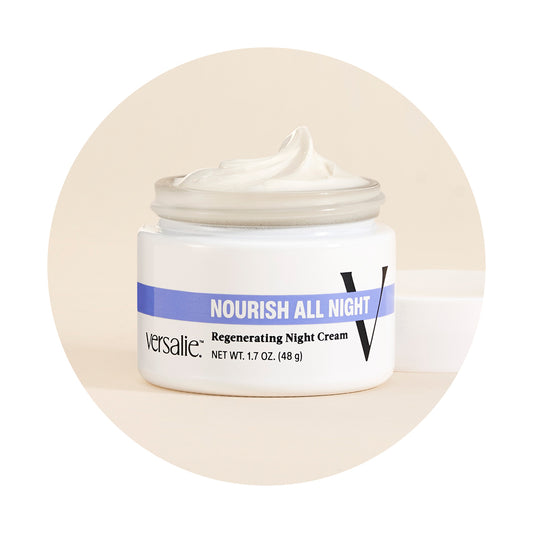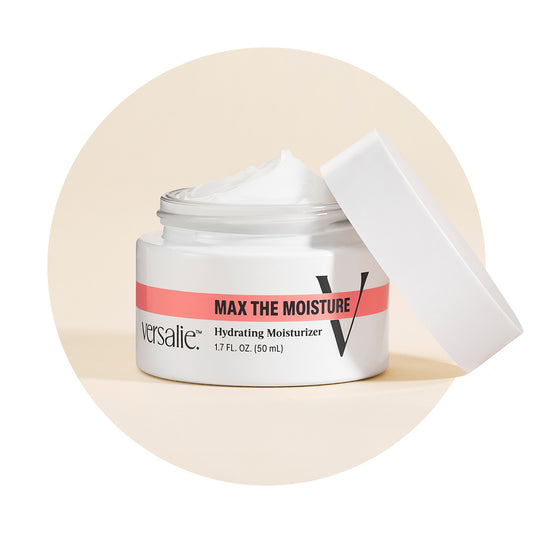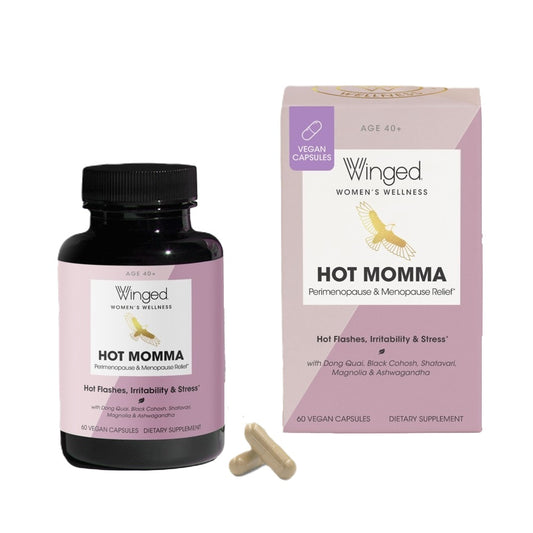Are you ready to face the menopause transition head-on and feel your best? You're in the right place! In this article, nutritionist and wellness expert Jennifer Hanway shares her top 10 nutrition tips to help you during this phase of life. We're talking about nourishing your body, boosting your energy levels, and even reducing those pesky hot flashes. So, grab a cup of tea, get comfy, and let's get started!
Talk to your doctor before making any changes to your diet or exercise routine.
Tip #1 Focus on nourishment, not deprivation
Eating healthy should be something that feels like a pleasure — a ‘get to do’ rather than a ‘have to do’. When we think about all the foods we can’t eat, we start to feel like we’re missing out. This can make us feel deprived, hungry, and want to eat sugary, high-carb, and high-fat treats. Instead, let’s think about all the nourishing, energy-giving foods we can eat. There are so many kinds of lean proteins, brightly colored vegetables, and healthy fats to choose from. These foods are packed with nutrients that can benefit our physical and mental health.
Tip #2 Build a brightly colored plate
With nourishment in mind, when you make your food look more interesting, you’re more likely to want to eat it. And the more colors of fruits and vegetables you include, the more antioxidant variety you consume, which contributes to your overall wellbeing. Aim to eat 5 different colored plant foods every day, like leafy greens, bell peppers, berries, and even dark chocolate!

Tip #3 Reduce your intake of added sugars and refined carbs
Regulating your blood sugar levels is important for overall health, especially as we age. But our body’s ability to do so is reduced as we get older. This can increase the risk of gaining weight, insulin resistance, and type 2 diabetes. A high intake of added sugar and refined carbs can also raise your total cholesterol, triglycerides, and LDL cholesterol levels. This can increase your risk of heart disease.
But reducing your intake of added sugars and refined carbs can help manage your blood sugar, manage your weight, and lower your risk of heart disease. You might even have more energy, feel happier, and sleep better.
Tip #4 Reduce alcohol consumption
There are many benefits to reducing your alcohol consumption during the menopause transition. First, alcohol can be high in sugar and calories without providing any nutritional benefits. This can lead to weight gain. For some people, alcohol can also make hot flashes worse, contribute to a low mood and anxiety, and can disrupt your sleep.
On top of that, drinking alcohol can also increase the risk of developing certain cancers, heart disease, and osteoporosis. Instead of trying to go ‘cold turkey’ when reducing your alcohol consumption, aim to find healthier replacements. Try swapping it with sparkling water with natural flavors or a sugar-free, nonalcoholic cocktail.
Tip #5 Include protein at every meal
Eating enough protein at each meal is important. It helps keep your blood sugar balanced and activates the hormones that keep you feeling full and satiated. This means you’re less likely to eat unhealthy foods between meals. Protein is also key for preserving your lean muscle mass. Lean muscle mass plays a key role in maintaining metabolic health and a healthy weight during the menopause transition. You can get protein from a variety of foods, like meat, fish, eggs, beans, and nuts. Eating a variety of foods containing protein can help you get all the nutrients you need.

Tip #6 Include phytoestrogen-rich foods
Some foods have substances called phytoestrogens. These foods contain compounds like isoflavones, prenylflavonoids, coumestans, and lignans, which are known for their phytoestrogenic (estrogen-mimicking) properties. Research suggests that phytoestrogen-rich foods may help reduce the number and intensity of hot flashes in some people going through the menopause transition. Additionally, phytoestrogen-rich foods have also been found to potentially:
- Improve blood sugar regulation.
- Improve insulin sensitivity.
- Reduce the risk of type 2 diabetes and cardiovascular diseases.
- Enhance bone health.
Great options include tofu, tempeh, flaxseeds, and sesame seeds.
Tip #7 Support the estrobolome with fermented foods
One of the least talked about changes during the menopause transition is the composition of the gut microbiome and the estrobolome. The estrobolome refers to a collection of gut bacteria capable of metabolizing estrogens, playing a crucial role in maintaining hormonal detoxification and balance within the body. A healthy microbiome and estrobolome may help support your overall health.
One way to keep our gut microbiome healthy is to eat fermented foods. These foods have good bacteria that can help our bodies. Some examples to add to any meal could include yogurt, kefir, kombucha, sauerkraut, kimchi, miso, and tempeh.
Tip #8 More fiber, more often
Increasing your fiber intake during the menopause transition is one way you can improve many areas of menopausal health. It can help with blood sugar regulation and weight management, gut health and digestion, and improving cholesterol levels. Aim for a mixture of soluble fiber (such as oats, apples, and beans) and insoluble fiber such as those found in whole grains, nuts, seeds, and legumes.

Tip #9 Include healthy fats
If you’re currently in perimenopause (or older), chances are you remember how popular low-fat diets were in previous decades. Thank goodness, we know better now! In fact, including healthy fats in your diet can help:
- Lower cholesterol.
- Your body absorbs bone-healthy vitamins (like Vitamin D and Vitamin K).
- Reduce inflammation.
- Benefit brain health and mental cognition.
Consider options like oily fish such as salmon, mackerel, or sardines and plant-based sources such as avocado, nuts, seeds, and olive oil.
Tip #10 Marvelous minerals
Did you know that vitamins aren’t the only essential element of a healthy diet? Minerals are just as important. Consider trying the following foods that are sources of important minerals:
- Calcium-rich foods to help prevent osteopenia and osteoporosis. Foods rich in calcium include high-quality dairy, leafy greens, nuts, and seeds.
- Zinc and iron-rich foods to help with energy production and mental cognition. Consider including shellfish, nuts and seeds, and lean red meat.
- Magnesium-rich foods to help promote bone health, improve stress management, and support heart health. Some good sources include leafy greens, nuts and seeds, and dark chocolate).
Be sure to talk to your doctor, or a telemedicine provider, if you have any questions or concerns on your individual menopause journey.
Learn more about Jennifer Hanway and our other Versalie advisors.










3 comments
I like the suggestions and what foods help with the different things our bodies go thru during menopause. Definitely need to add and take away some things from my regular eating habits.
I love when this article gives specific reasons that the suggestions are good for menopausal support.
I have been going through menopause symptoms for about 30 years, I am so tired of this.